Understanding fractions Normal Fractions Worksheets for Ages 3-9
8 filtered results
-
From - To
Unlock the world of fractions for young learners with our "Understanding Fractions Normal Fractions Worksheets," designed for ages 3-9. These meticulously crafted worksheets simplify complex concepts using engaging visuals and relatable examples, perfect for nurturing foundational math skills. Each activity progressively builds confidence, ensuring children grasp halves, thirds, quarters, and more. Ideal for both classroom and at-home learning, these worksheets make fractions fun and accessible, paving the way for future mathematical success. Empower your child with the skills to understand and love fractions. Start their journey today with Kids Academy's expert-approved resources!
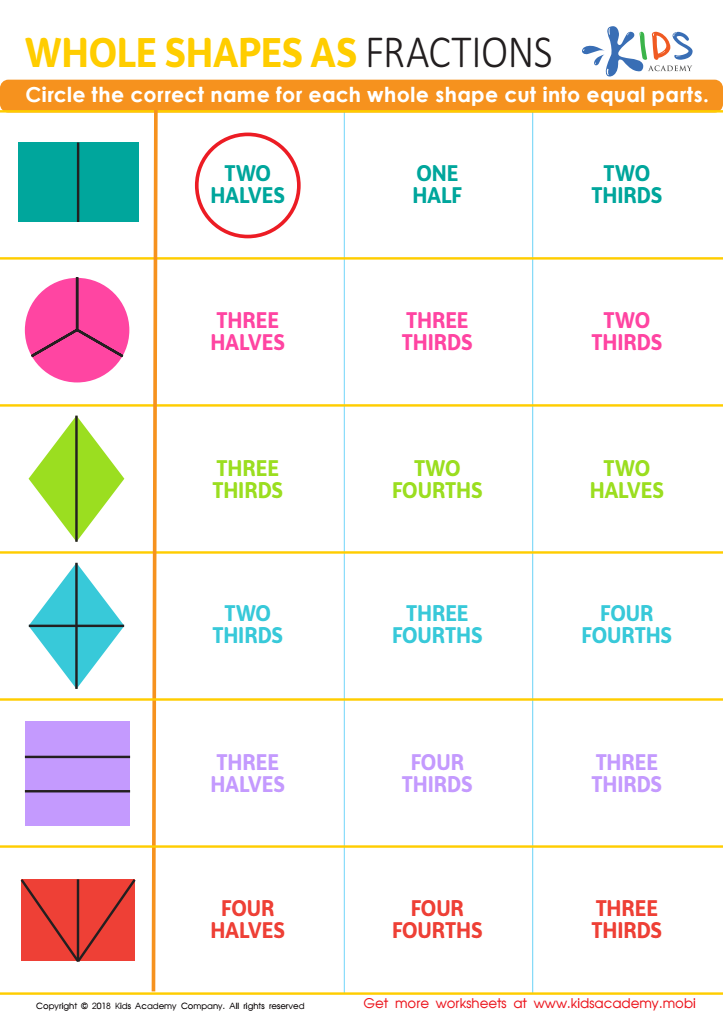

Whole Shapes as Fractions Worksheet
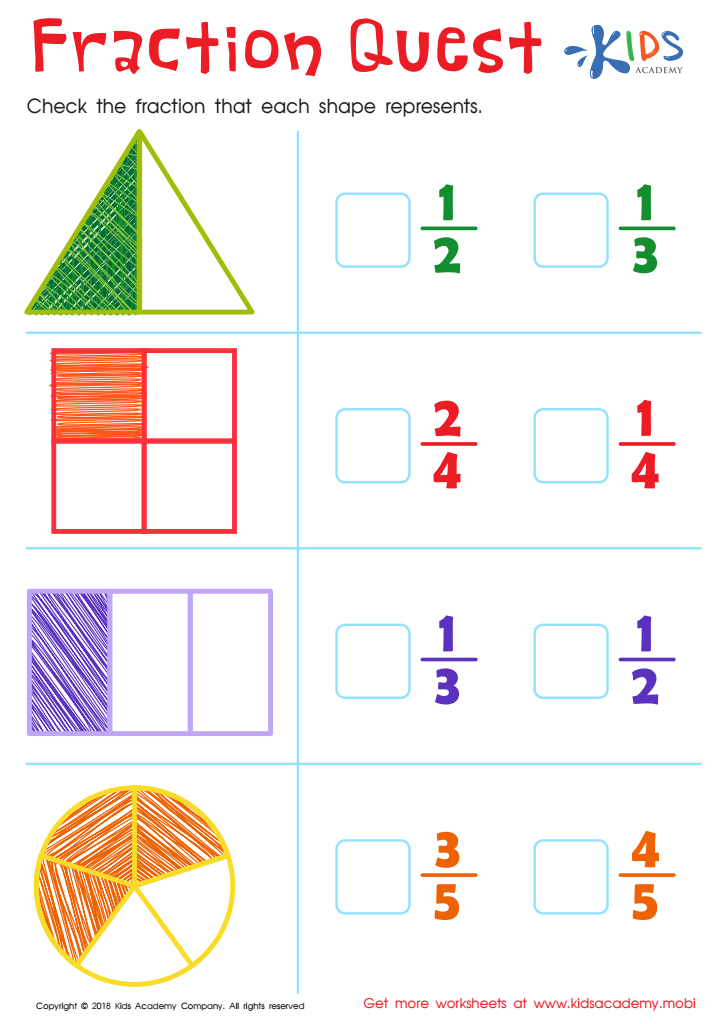

Fraction Quest Worksheet
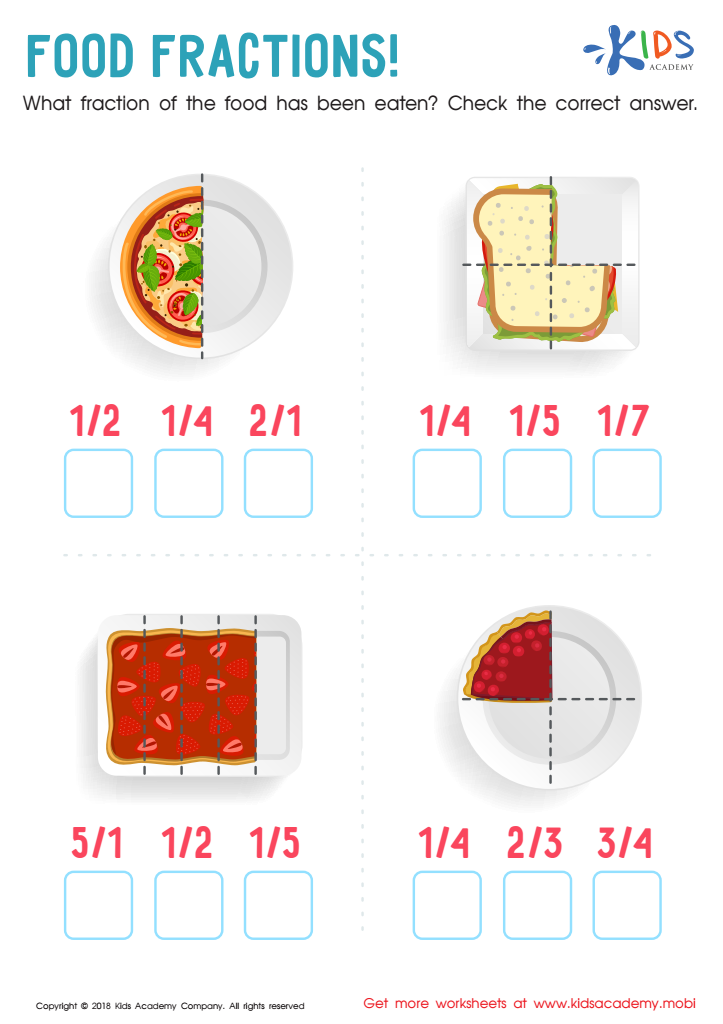

Food Fractions Worksheet
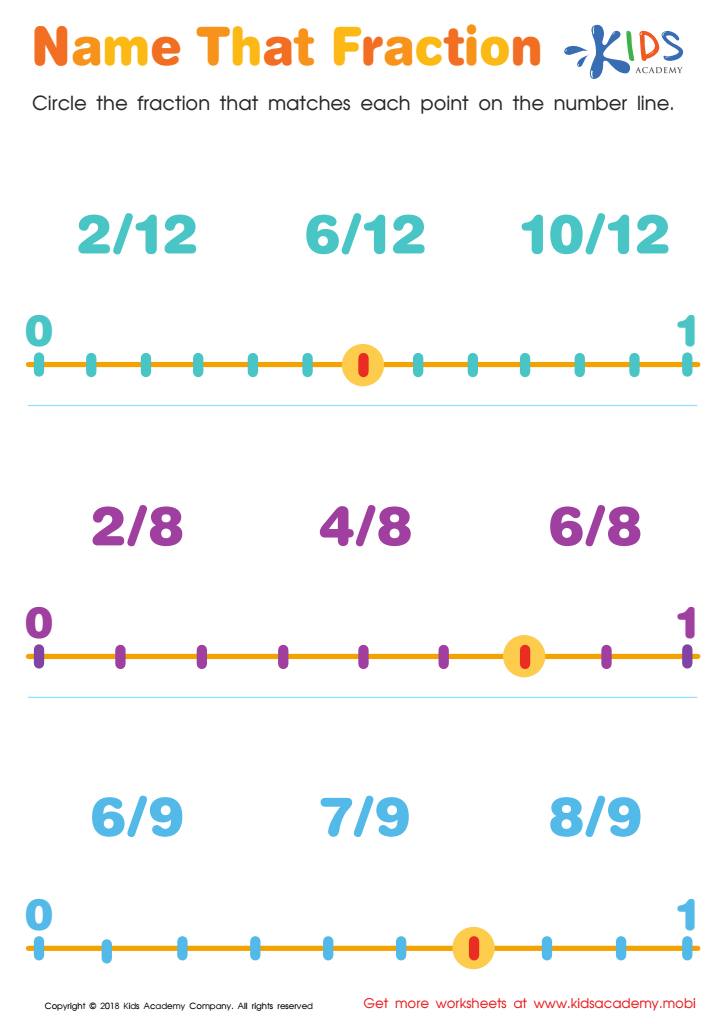

Name That Fraction Worksheet
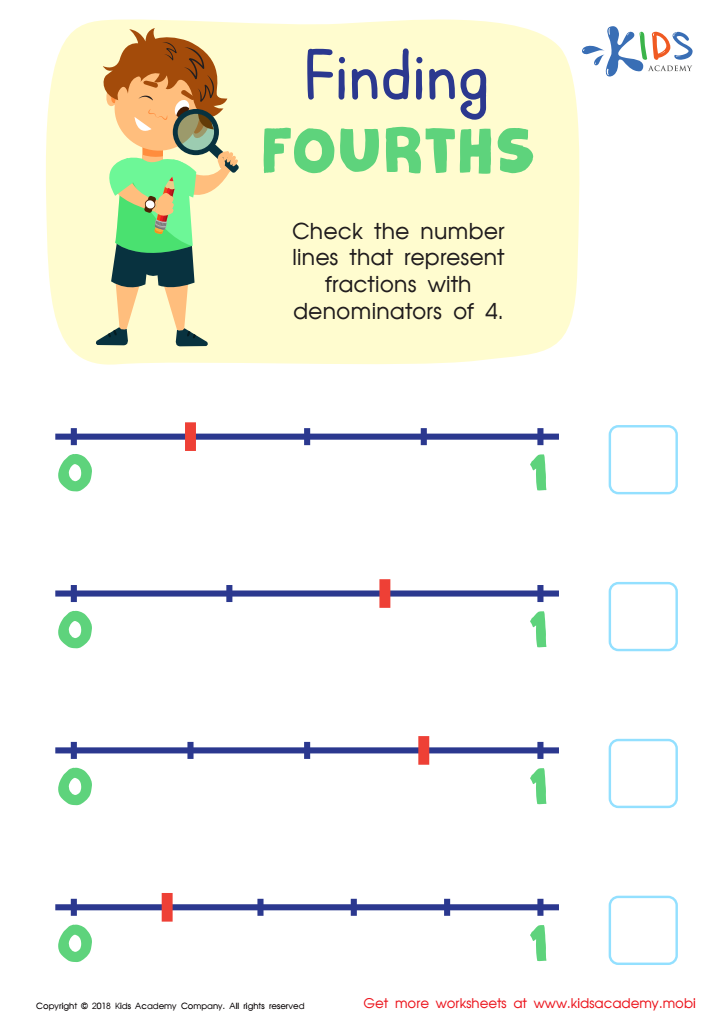

Finding Fourths Worksheet
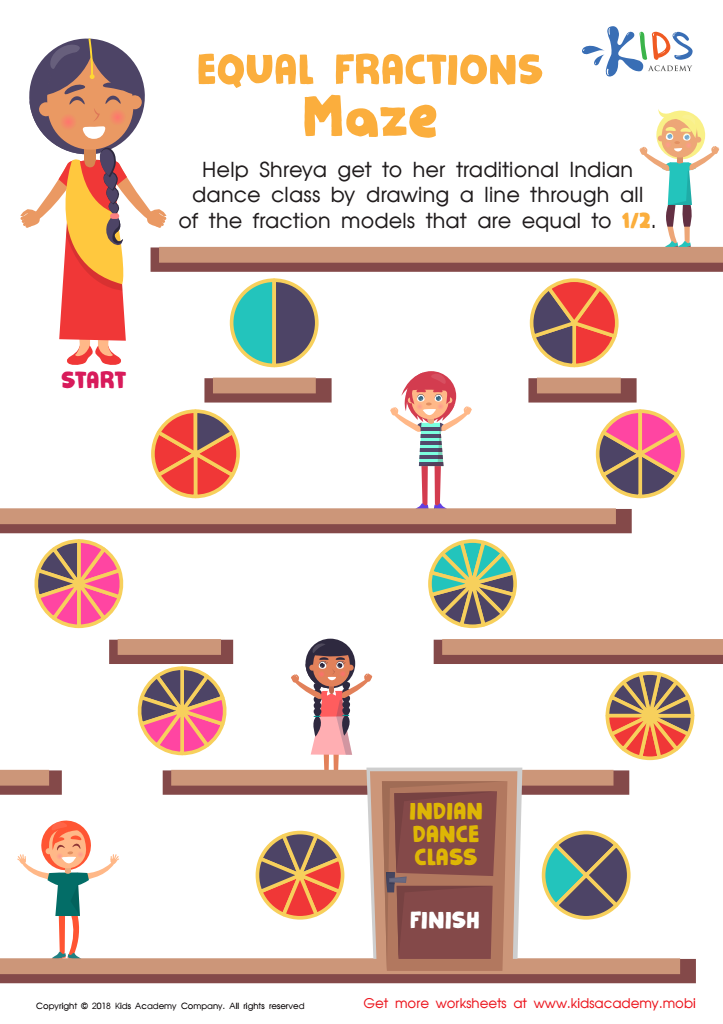

Equal Fractions Maze Worksheet
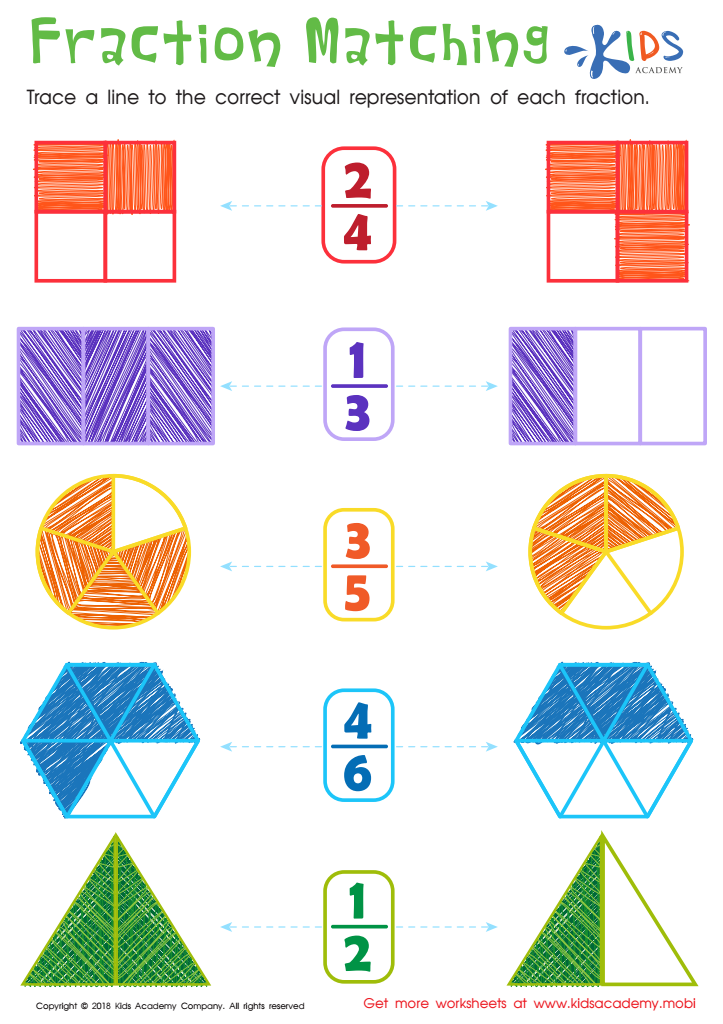

Fraction Matching Worksheet
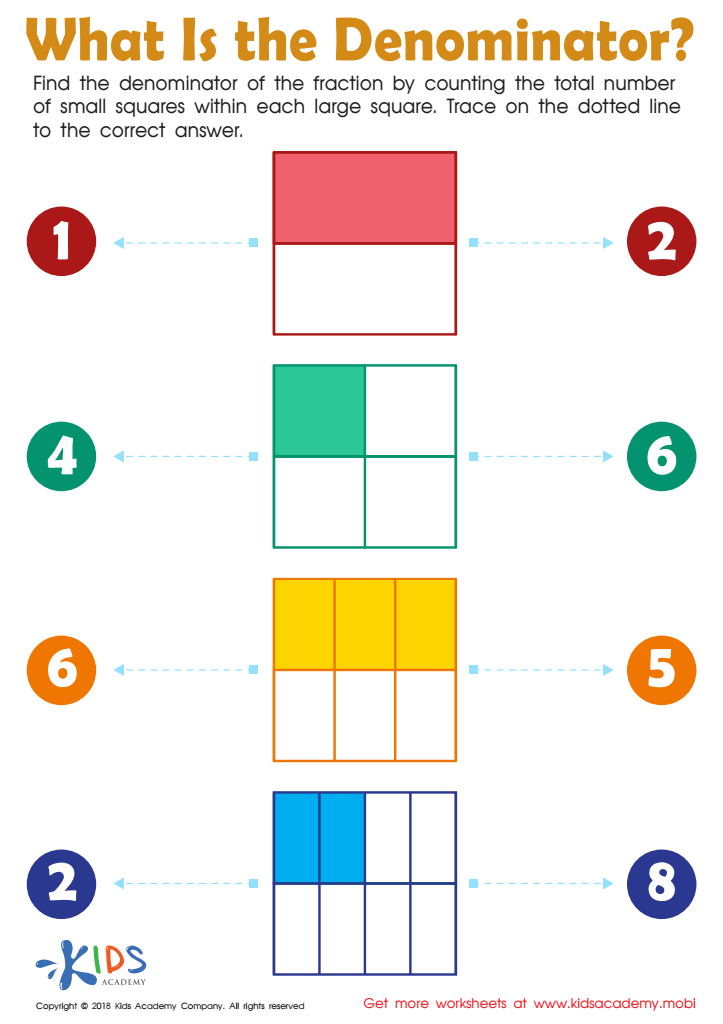

What Is the Denominator? Worksheet
Understanding fractions is foundational for young learners, typically between ages 3-9, and it's important for several reasons. Firstly, fractions are integral to everyday life. Kids encounter fractions when slicing a pizza, sharing candy bars, measuring ingredients for a recipe, or dividing time. Early comprehension of these concepts ensures kids are equipped to handle everyday tasks efficiently.
Educationally, fractions serve as a stepping-stone to more complex mathematical concepts. At a young age, grasping fractions lays the groundwork for future topics like ratios, percentages, decimals, and algebra. Familiarity with fractions bolsters a child’s numerical literacy and problem-solving abilities, forming a crucial part of the elementary math curriculum.
Moreover, understanding fractions enhances cognitive development by fostering critical-thinking and analytical skills. Children learn to compare, divide, and recognize the value of parts in relation to a whole, which hones their decision-making abilities.
From a developmental perspective, early exposure to fractions promotes confidence in math. Positive experiences with foundational concepts can alleviate math anxiety, making students more likely to engage in STEM (Science, Technology, Engineering, and Mathematics) fields later in life.
In summary, focusing on fractions for young learners catalyzes their mathematical competence and cognitive growth, ensuring they are well-rounded, confident, and capable individuals prepared for future academic and real-world challenges.
 Assign to My Students
Assign to My Students




.jpg)











